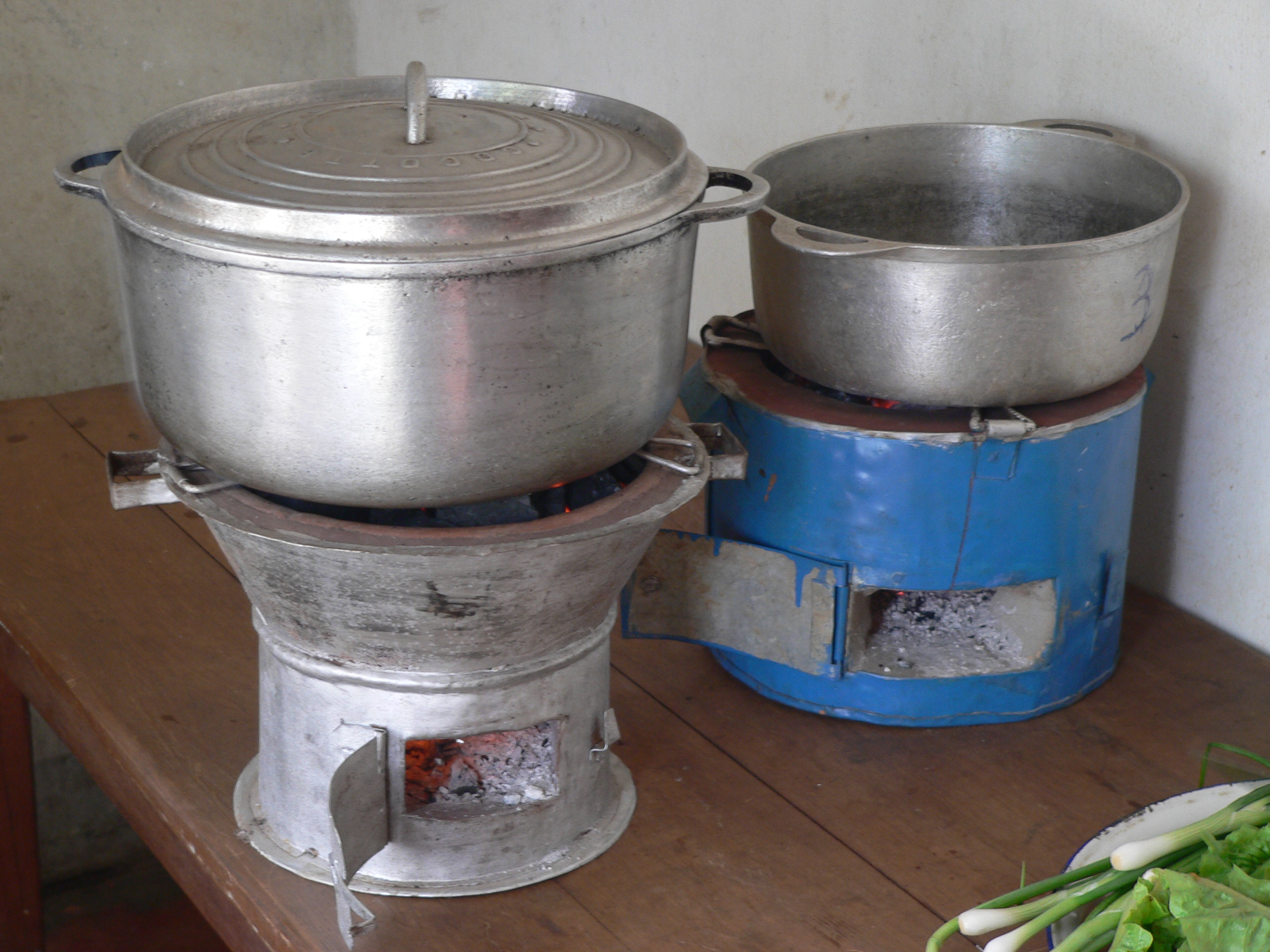

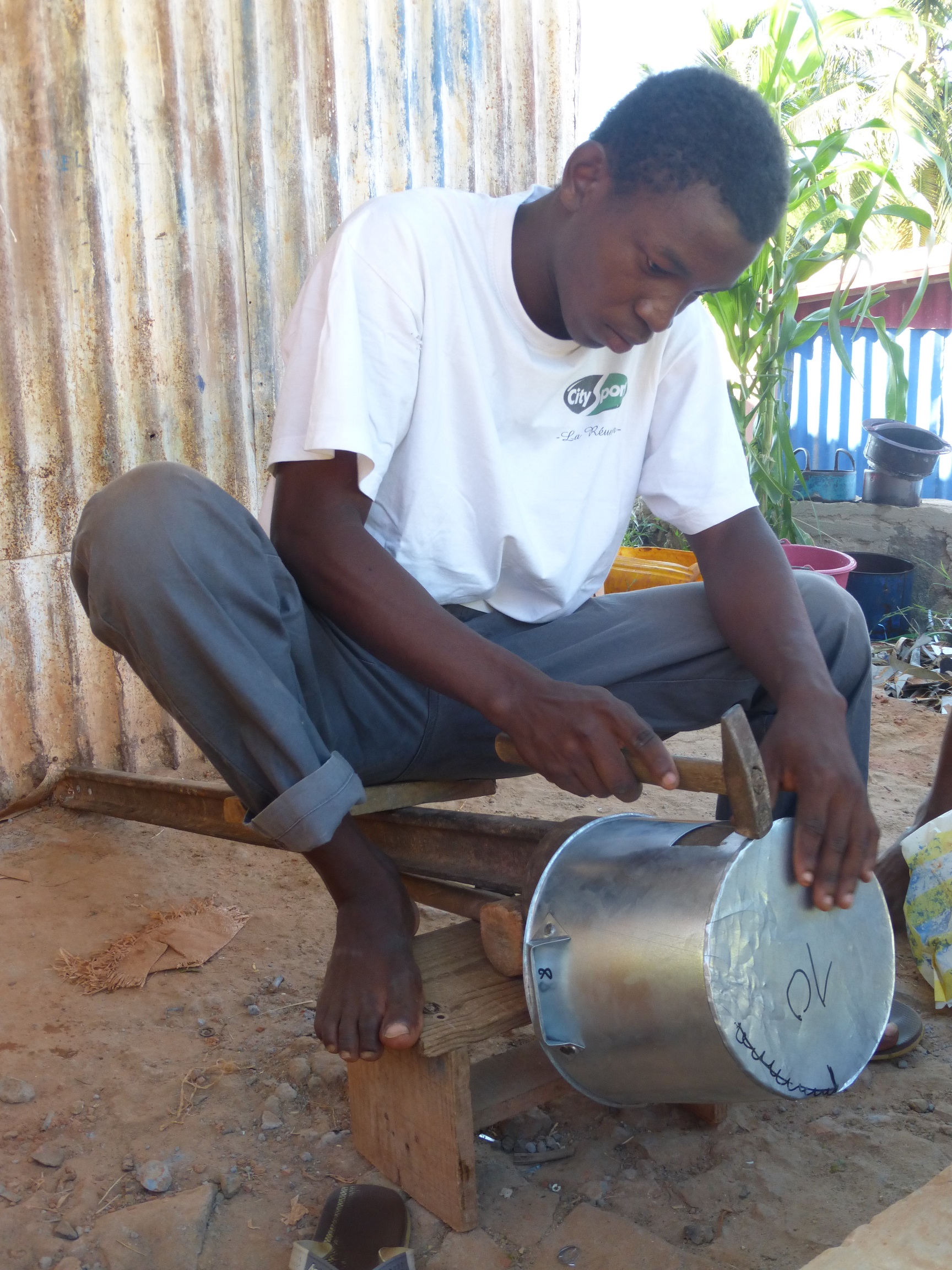
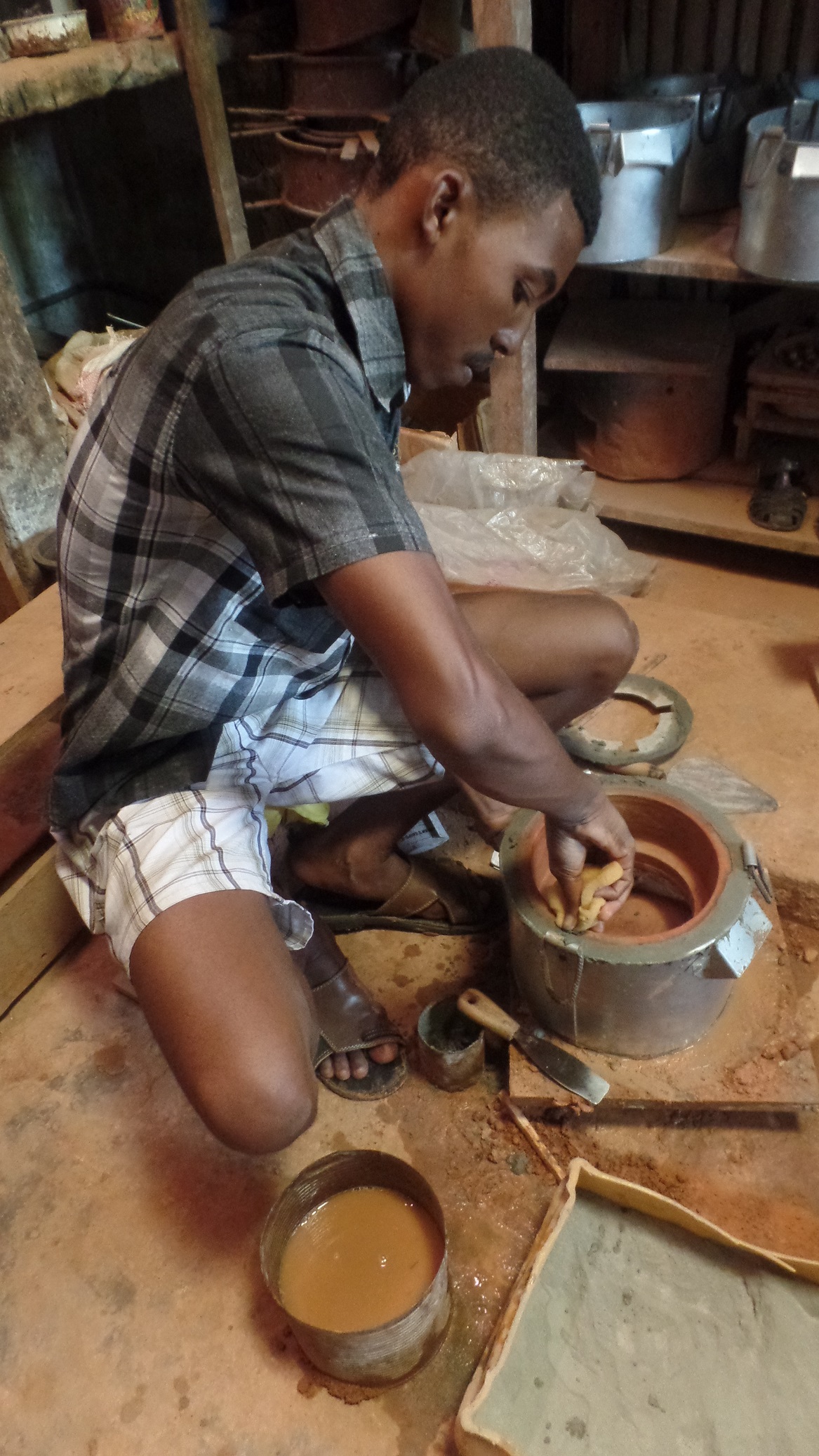
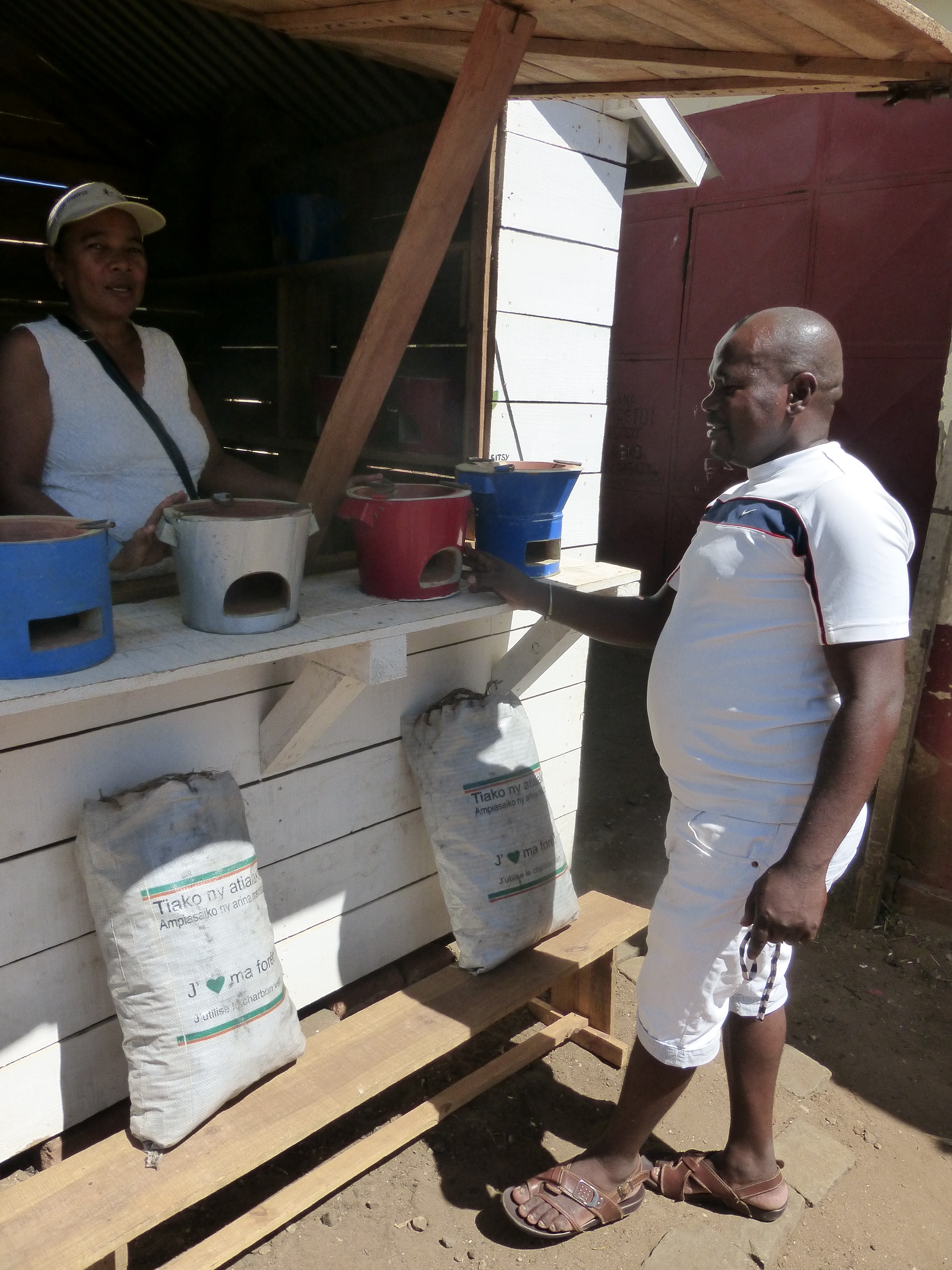
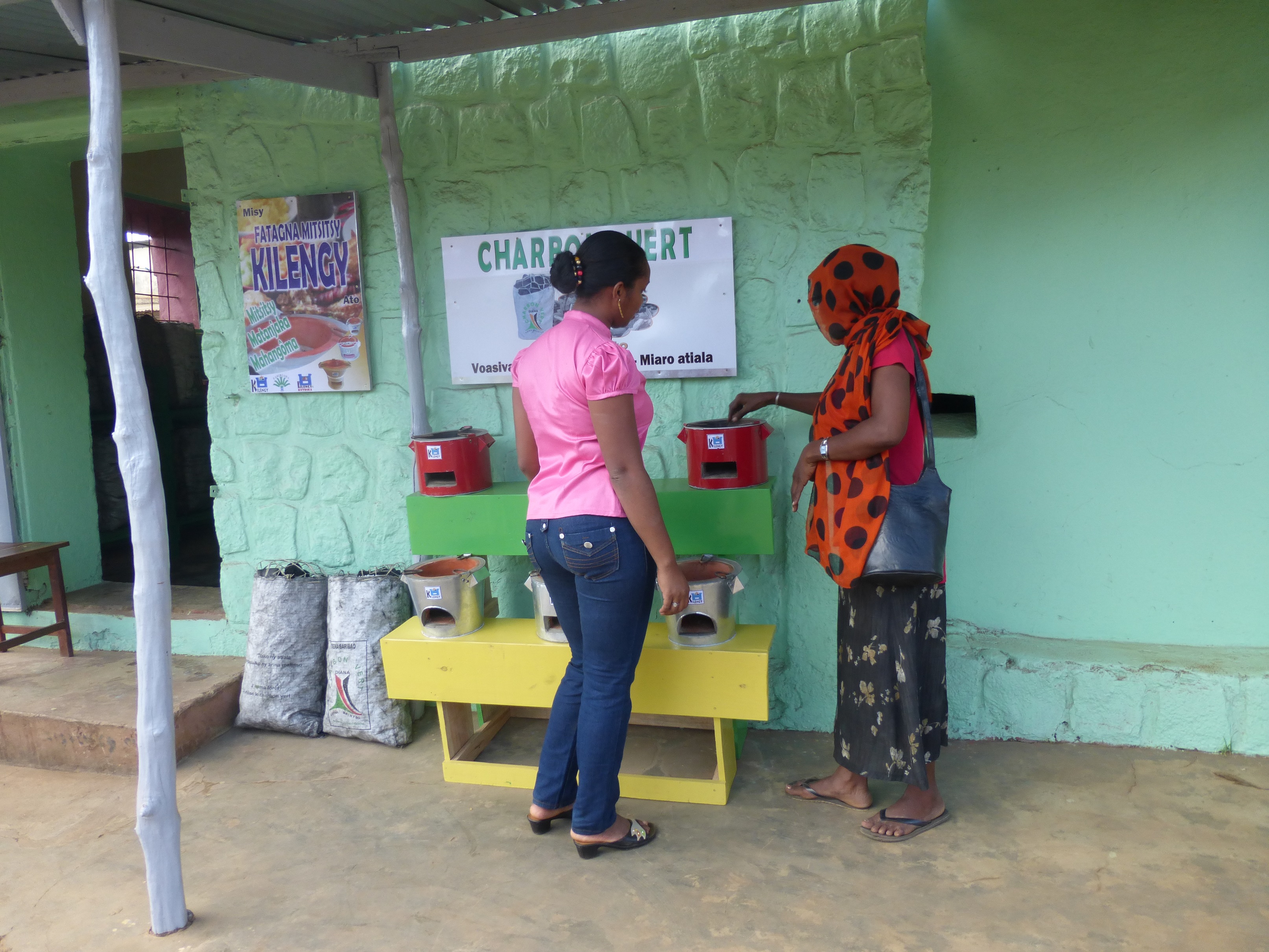
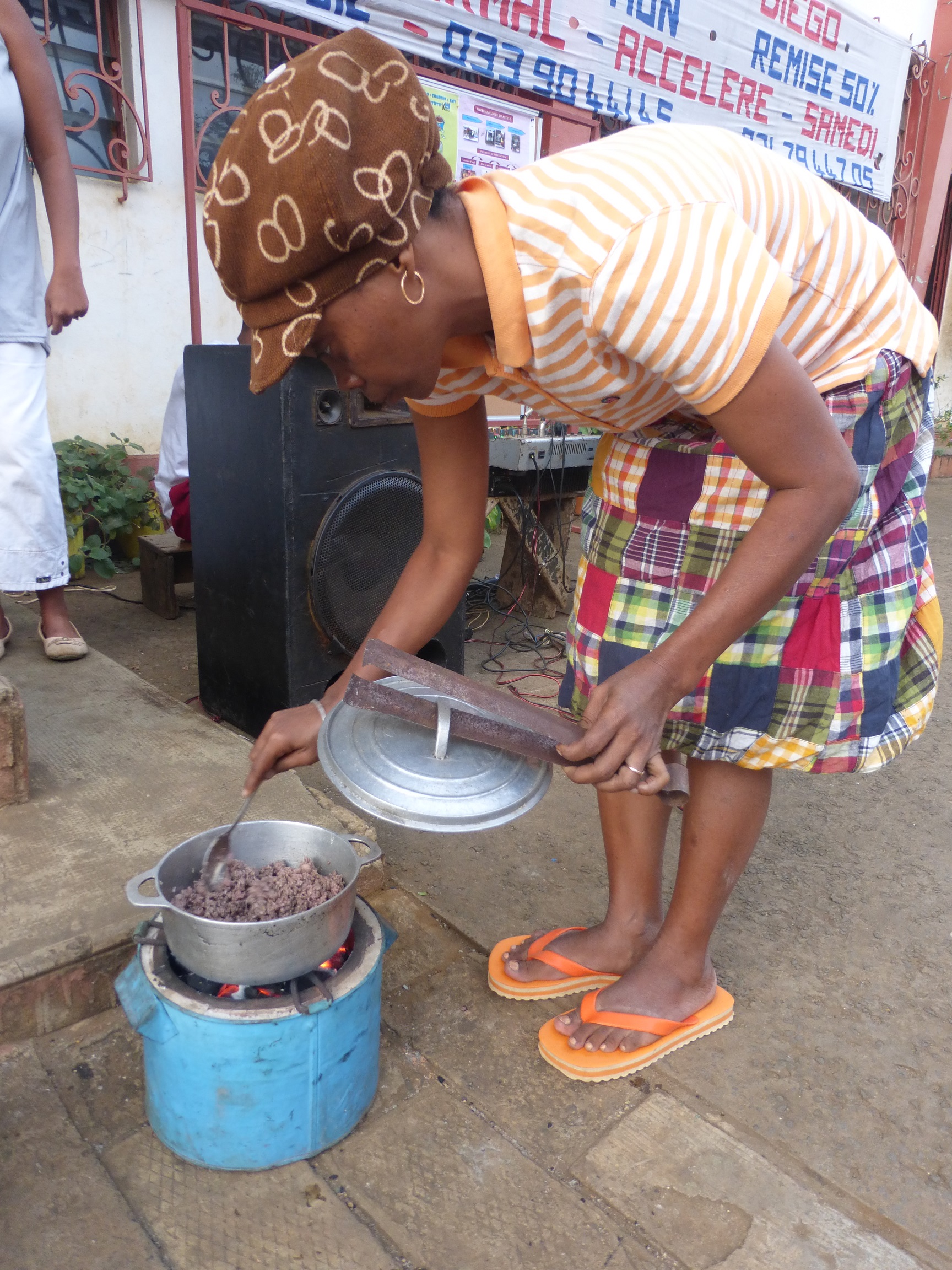
Decentral manufacturing and dissemination of energy efficient improved cook stoves (ICS) was supported including the development & testing of even more efficient, cleaner and safer combustion technologies.
The stoves save ~1,600 t of charcoal p.a., worth a total of EUR 187,500 or EUR 15 per household (which corresponds to a 25% drop in expenditure). Alternative sources of energy such as LPG are tested. Retailers and end consumers receive information and advice, partly in the context of public-private partnerships.
A women’s association (15 members) was created to promote the use of ICS in households. It focuses on educating households about the environmental and health hazards associated with traditional stoves & benefits of ICS. Most of the established ICS production sites and selling points are run by women. A panel comprising 150 households has been established to monitor annually the consumption pattern as well as the adoption rate of ICS. To date, around 12,500 families (about 30% of all households in Diego) use ICS. Instead of 117 kg/pers./yr., the households only consume 89 kg/pers./yr of charcoal.
- Agreements and harmonisation with approaches of other donor supported projects (e.g. World Bank UPED project for the introduction of improved metal stoves adapted to the culinary practices of households)
- Meticulous quality assurance to meet efficiency and safety standards
- Growing market price of charcoal
- Demand from certain households for new types of improved stoves, particularly in clay, which are more efficient than improved metal stoves
- The project intervened at all levels of the ICS value chain from production to commercialisation, by supporting private entrepreneurship and public relations activities
- Benefits from technological innovation must outweigh the inevitable inconvenience and socio-economic hardships associated with the adoption of improved stoves (high investment cost for the consumer/ drop in sales for the charcoal producer)
- The challenge lies in designing improved cook stove (ICS) types that, while being compatible with established cooking habits and nutritional routines, readily lend themselves to manufacturing by local artisans
- Manufactures of improved stoves require coaching and business development support so as to clear the hurdle of establishing start-up small and medium enterprises (SMEs)